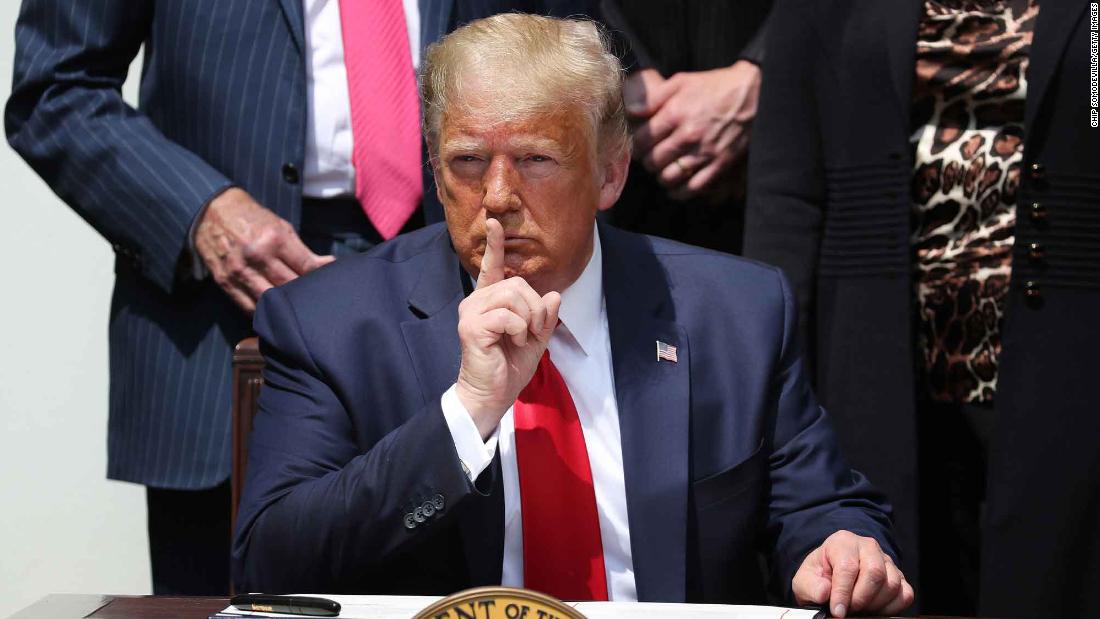Analysis: The remarkable collapse of Donald Trump's polling numbers - 4 minutes read
 (CNN) One of the defining traits of President Donald Trump's time in office has been the consistency of his poll numbers.
(CNN) One of the defining traits of President Donald Trump's time in office has been the consistency of his poll numbers.No matter what he said, did or tweeted, his numbers stayed steady. Somewhere between 40-45% approved of the job he was doing while 50-55% disapproved.
Which is why what Gallup reported in its latest tracking poll, released on Wednesday morning, is so striking.
Trump's job approval in the new Gallup data is at 39% , which is bad but not the big story. That big story is the fact that Trump's new numbers represent a double-digit tumble from a Gallup poll just two weeks ago in which his approval stood at 49%
That's a stunning dip. And it's across the board. He's down 7 points in approval among Republicans and independents and 9 points among Democrats. And it all seems tied to the way in which Trump reacted to the death of George Floyd while in police custody and the protests that have broken out nationwide in its aftermath.
"Trump's comments and actions in response to the protests last week, including a vow to send U.S. military troops to cities to quell violent protests, were controversial. The administration was widely criticized after police in Washington, D.C., used chemical irritants to disperse peaceful protestors from an area shortly before the president posed for photos in front of a nearby church."
Floyd was killed on May 25 in Minneapolis. This latest Gallup poll was in the field from May 28 - June 4, meaning it is very likely that it caught people at the peak of their outrage, frustration, anger and fear about the issue of police brutality and Trump's, um, uneven handling of the matter.
But Gallup's numbers are far from an outlier. The latest CNN poll , released earlier this week, put Trump's approval at 38% -- down from 45% in May. An NPR/PBS/Marist pol l put Trump's job approval at 42%. (Those national numbers are reflected in swing state polling too. Recent polls in Ohio, Arizona, Texas and Michigan, among others, show significant problems for Trump in a head-to-head matchup with presumptive Democratic nominee Joe Biden.)
More than 4 in 10 voters (42%) said that race relations would be "extremely" important in determining their vote for president in the fall. That's a huge number given that race relations as a or the deciding factor in voters' minds has long trailed things like the economy and health care by large margins. Asked which candidate they trusted more to handle race relations in America, Biden took 63% to 31% for Trump.
What Floyd's death and the ensuing protests have done then is force the conversation about race to the top of lots and lots of peoples' minds who, even a few weeks ago, weren't really thinking about it. And what they've found when they started thinking a lot about it is that Trump is uniquely unsuited to solving a problem like systemic racism.
There's more of this stuff. Lots more. And it all points to a willingness on behalf of Trump to weaponize race when it fits his business or political interests. And he has repeatedly done so with little regard for the ways in which his words and actions -- particularly as president -- influence the ways in which people of color are treated in America.
The polling data cited above suggests such an address will not work. Trump is too damaged a messenger on issues of race. Which means that the longer people consider race and race relations as a voting issue, the worse these polls will continue to be for Trump.
His only hope is that the national conversation moves on -- ideally, for him, to better economic numbers following the nationwide coronavirus shutdown.
Source: CNN
Powered by NewsAPI.org